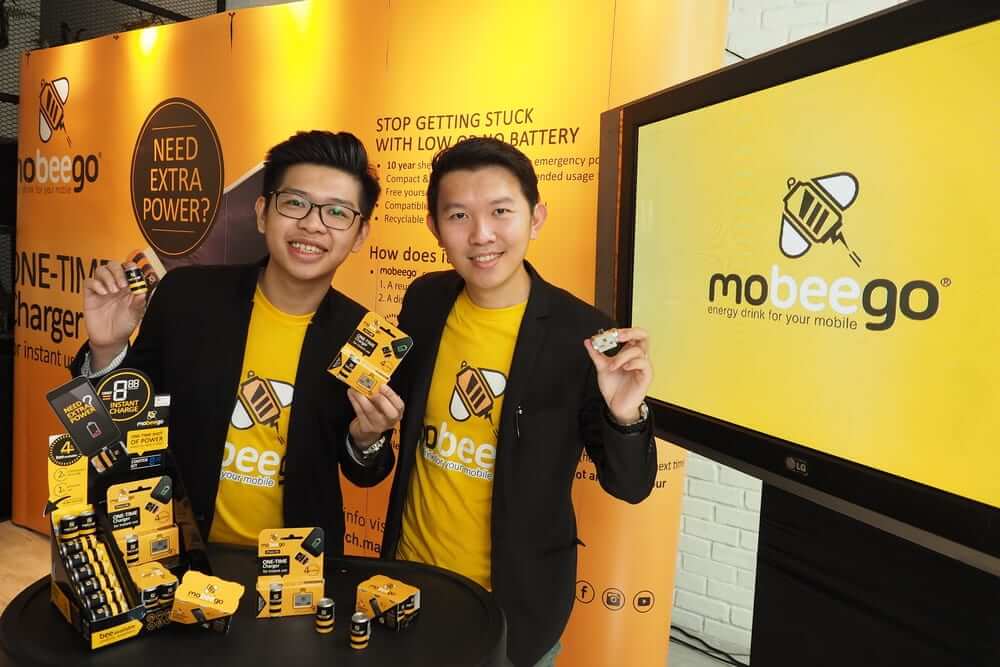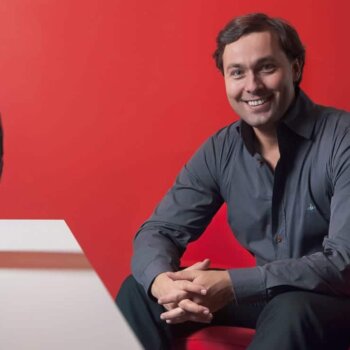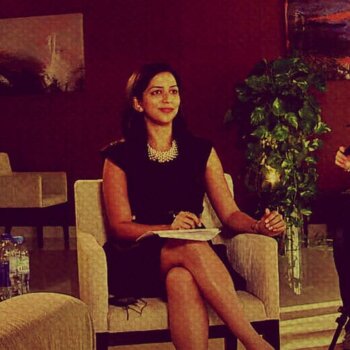Edric Foong graduated from Monash University with a Bachelor Degree in Information Technology. After graduating, Edric did what most young graduates did by convention, he decided to apply for a corporate job. Having been offered to work for several top banks; Edric ultimately decided to pursue his first job with Citibank. After 6 months with Citi, Edric gradually realized that he was not someone that could sit behind a computer screen everyday from 9 to 5 and as such he began to find his job meaningless. Edric felt that he was slowly being transformed into a cog for the corporate machinery and sensed that a greater calling laid elsewhere. In a bold move, Edric resigned his job and decided to fully pursue his true passion in technological innovation without the boundaries set by his old job. Edric started his company Veloster Technology with his partner, a company that brings in cutting edge technology products from all over the world back to Malaysia. With a vision to innovate Malaysia through technological products, Edric and his partner recently introduced Mobeego to Malaysia. Edric speaks to us about Mobeego and tell us a personal tale of entrepreneurship.
In your own words what is Mobeego?
Mobeego is an affordable, handy, single-use battery charger for mobile phones. If you’ve ever been in a situation where your mobile phone battery is draining and you have no way of charging it while still being on the go – Mobeego is the answer we’re providing. In short, a mobile ‘life-saver’.
How did you come up with the idea of introducing Mobeego to Malaysia?
Like most people in some point in their lives, I once found myself stuck with a mobile phone that was on the verge of running out of battery. With no access to any power banks and still needing to be on the go, my mobile phone eventually drained itself out. As luck would have it, I missed a couple of important phone calls and a rescheduled appointment. While ranting my frustrations to my friend and now business partner Kelvin, we contemplated the idea of disposable power banks that could be purchased from convenience stores and the likes. This was the catalyst to our search and eventual discovery of Mobeego. We decided that we couldn’t possibly be the only ones in Malaysia to have ever been caught with a draining mobile phone battery and so, here we are.
Could you walk us through the process of starting up Mobeego in Malaysia?
Starting up and introducing Mobeego in Malaysia was surprisingly easier than we had anticipated. We first spoke to the principals of Mobeego and signed on as their master distributor in Malaysia. We then arranged to meet with and introduce Mobeego to a number of convenience store chains that eventually picked up on our product and gave us shelf space. From there, it was marketing, marketing, marketing. We knew we had to get Mobeego into the minds and hands of consumers, so we held press conferences, arranged blog write-ups and giveaways to get our brand out there.
Did you encounter any particular difficulties during startup?
Initially we received a lot of feedback comparing Mobeego to the traditional bulky power banks that had to be lugged around. People found it hard to understand the value of Mobeego as a possible ‘life-saving’ product in an emergency situation. There were also fears of not being able to purchase a refill as conveniently as we made it out to be. We’ve since quashed these perceptions by educating consumers on the convenience of Mobeego as a single-use, cordless, boost of power for mobile phones without the hassle of having to remember to bring those bulky power banks along. We’ve also marketed Mobeego at an affordable price point with the average consumer in mind. We are currently in discussion with a number of retail chains and will hopefully make Mobeego available at every turn and corner so no one will ever be left with a drained mobile phone.
How have you been developing Mobeego since startup?
We are looking at making Mobeego instantly available by increasing our point of sales. By the end of this year, we are hoping to have it stocked in at least 1000 stores across Malaysia. From there, we are hoping to expand into the Asian market, starting with Singapore.
What kind of feedback did you get for Mobeego so far?
I am proud to say that those who have used or purchased Mobeego have only raving reviews, mostly mentioning the convenience, reliability and sense of ‘security’ it offers.
What is your strategy against your competition?
To a certain extent, our main competition is the traditional bulky power banks. Having said that, we are not in direct competition with them, but rather the idea that compares Mobeego to these traditional power banks. Our strategy is a simple yet tedious one – to educate consumers about Mobeego.
What is the future of the industry?
Technology is always changing and improving. It is never stagnant and like it or not, that is the industry we are in – we source the latest and the newest and make it available to the general public. To stay relevant in this industry, we need to evolve as technology evolves and we need to have a keen understanding of our target market. Our challenge is know what consumers need even before they know it so we can spawn that desire in them. Timing is key.
Were there anything that disappointed you initially?
Disappointment is an inevitable part of growing as a business. Initially we did face some resistance in the market, mostly due to ignorance and a traditional mindset.

A little bit of both. On the one hand, it is easier as I know the Asian market, its trends and what appeals to it. On the other hand, entrepreneurship is a fairly new concept in Asia. Every other person in Asia is a businessman, but entrepreneurs are few and far between. Running a successful business that is profit-oriented gets you lauded as a great businessman. However, running an entrepreneurship that strives to change the world, to benefit the public, to bring innovation and change to the market with less emphasis on financial returns isn’t something that is encouraged in Asian society
What is your opinion on Asian entrepreneurship vs Western entrepreneurship?
I might be generalizing a little here, but I feel that entrepreneurship is still considered a taboo for most Asian families. Most families still harp on the importance of a stable, 9 to 5, salaried job. So, unless you’re from a family that already runs its own business, it is unlikely for a child to grow up with aspirations of being an entrepreneur. This then carries through to the financial start up needed to be an entrepreneur. There isn’t any known financial aid for those who want to pursue entrepreneurship. Those that do manage to step into the world of Asian entrepreneurship are again those who have come from families with their own successful business that are then able to fund a new venture. Western entrepreneurship on the other hand, brings to mind stories of Bill Gates or Mark Zuckerberg. That opportunity is what you make of it and that world-is-your-oyster concepts. It’s just a different world, a different understanding and a whole different world of challenges.
What is your definition of success?
Success to me is not an end point. It’s not like running a 100 metre race and being the first to the finish line. Instead, success is the process of bettering myself. If I can look back at my life and know that I have not stopped being a better me – that is success.
Why did you decide to become an entrepreneur?
I’ve always been a bit of rebel. I like to challenge preconceived ideas and traditional methods of doing things. This world has never had a shortage of problems, so if I can do my bit to alleviate even the littlest of the most mundane issue, I would. And if doing that labels me as an entrepreneur, I guess that’s what I am.
In your opinion, what are the keys to entrepreneurial success?
Create a competitive edge. Be it in pricing, marketing, creating a desire, or just customer service, do that one thing that makes you stand out.
Any parting words of wisdom for entrepreneurs out there from your personal experience?
While this may sound cliché, the key thing is to believe in yourself and your idea. It takes just that one idea to spark that whole thing off and if you believe in that idea, roll with it, pursue it, sell it and when you come to a point where you’re not the only one who believes in it – you’ve succeeded.
Connect



































